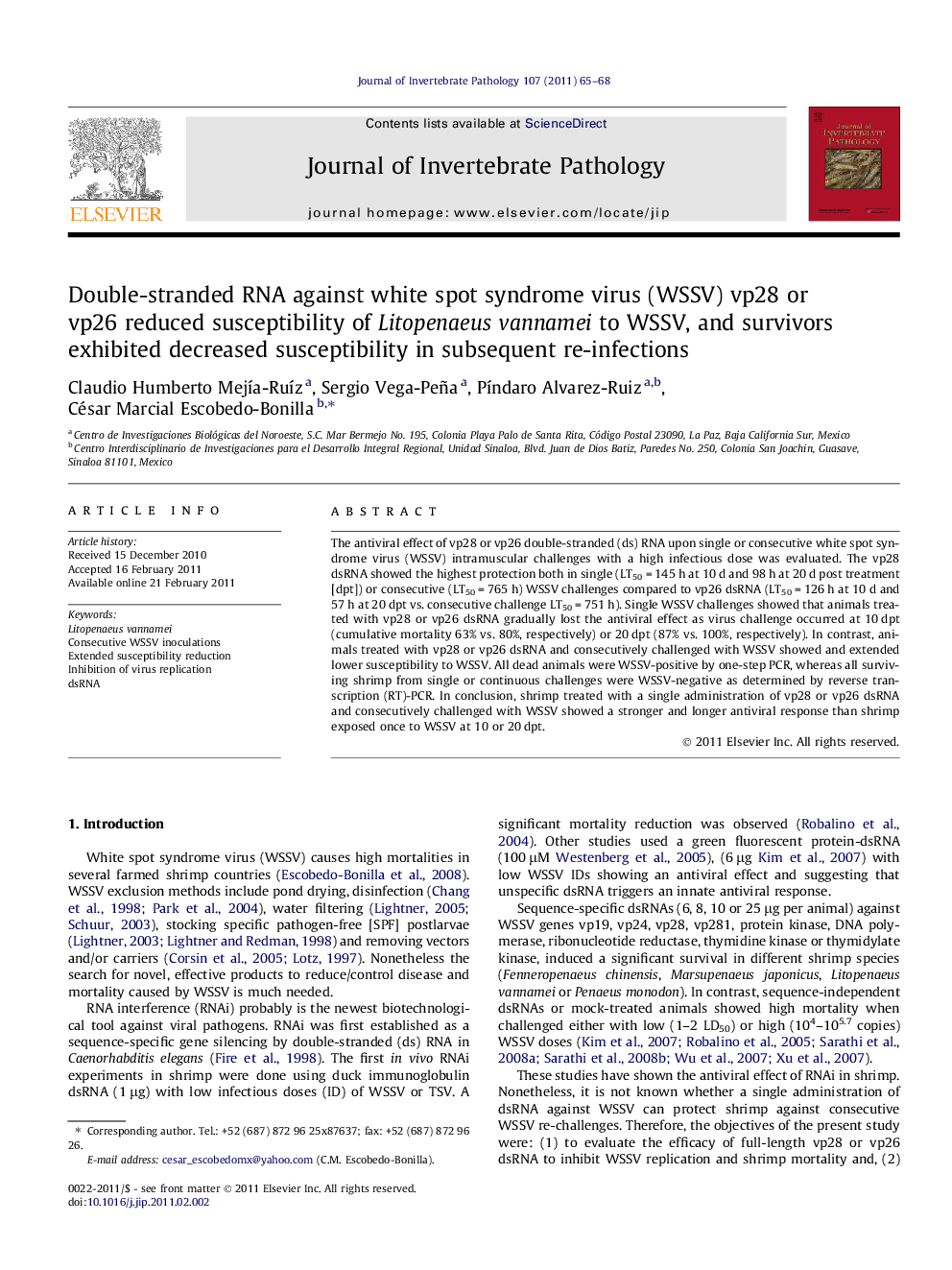| Article ID | Journal | Published Year | Pages | File Type |
|---|---|---|---|---|
| 4557996 | Journal of Invertebrate Pathology | 2011 | 4 Pages |
The antiviral effect of vp28 or vp26 double-stranded (ds) RNA upon single or consecutive white spot syndrome virus (WSSV) intramuscular challenges with a high infectious dose was evaluated. The vp28 dsRNA showed the highest protection both in single (LT50 = 145 h at 10 d and 98 h at 20 d post treatment [dpt]) or consecutive (LT50 = 765 h) WSSV challenges compared to vp26 dsRNA (LT50 = 126 h at 10 d and 57 h at 20 dpt vs. consecutive challenge LT50 = 751 h). Single WSSV challenges showed that animals treated with vp28 or vp26 dsRNA gradually lost the antiviral effect as virus challenge occurred at 10 dpt (cumulative mortality 63% vs. 80%, respectively) or 20 dpt (87% vs. 100%, respectively). In contrast, animals treated with vp28 or vp26 dsRNA and consecutively challenged with WSSV showed and extended lower susceptibility to WSSV. All dead animals were WSSV-positive by one-step PCR, whereas all surviving shrimp from single or continuous challenges were WSSV-negative as determined by reverse transcription (RT)-PCR. In conclusion, shrimp treated with a single administration of vp28 or vp26 dsRNA and consecutively challenged with WSSV showed a stronger and longer antiviral response than shrimp exposed once to WSSV at 10 or 20 dpt.
Graphical abstractFigure (a) shows cumulative mortality (mean ± SE) of shrimp treated with vp28 or vp26 dsRNA and consecutively challenged with WSSV. Figure (b) shows cumulative mortality (mean ± SE) of shrimp treated with vp28 or vp26 dsRNA and challenged once with WSSV at 10 or 20 d post treatment.Figure optionsDownload full-size imageDownload as PowerPoint slideHighlights► dsRNA against WSSV reduced efficacy as single WSSV challenge was done at 10–20 dpt. ► dsRNA against WSSV showed longer protection upon consecutive WSSV challenges. ► A WSSV sublethal infection may have reduced susceptibility upon WSSV re-challenges.
